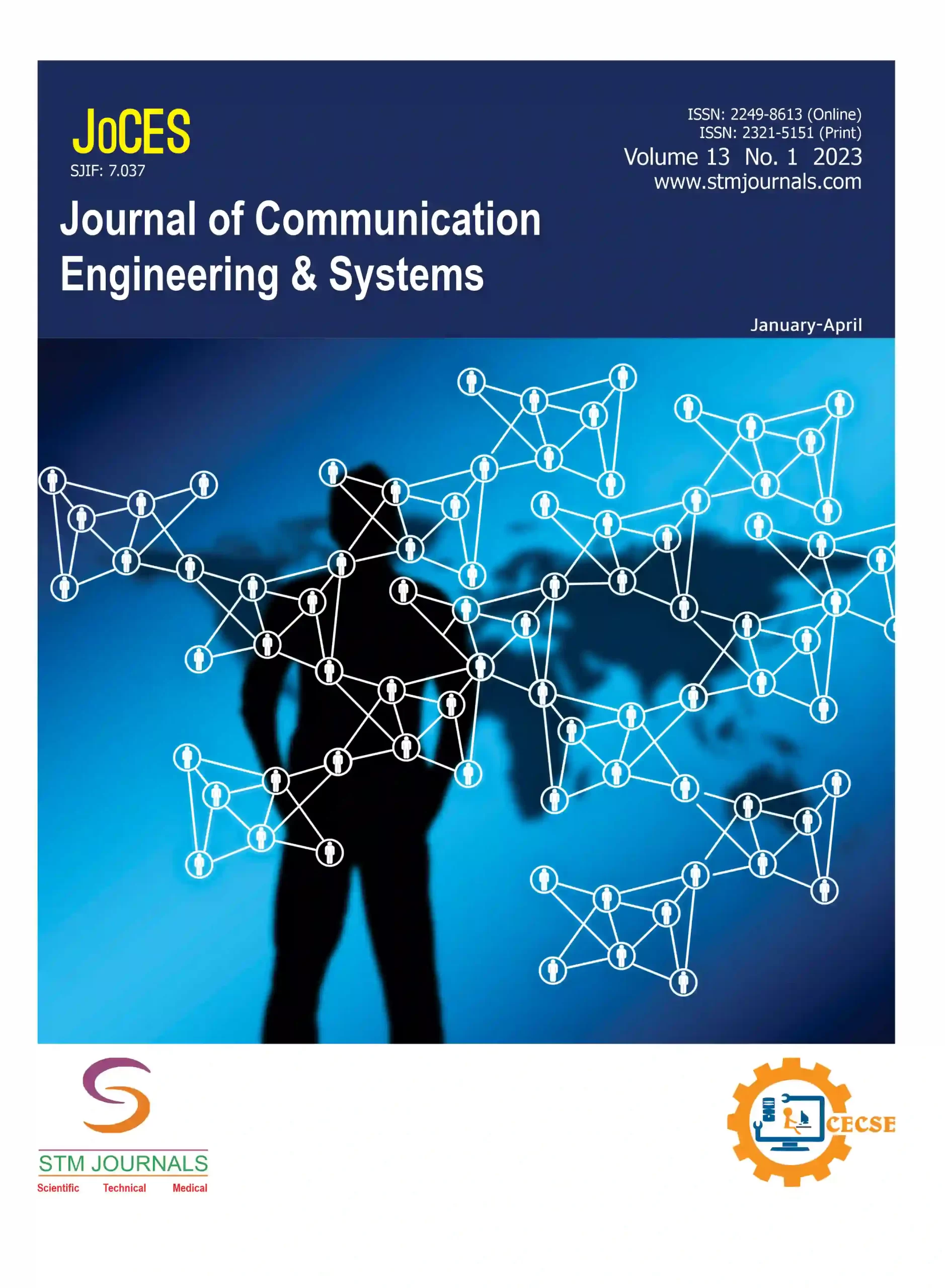[{“box”:0,”content”:”[if 992 equals=”Open Access”]
Open Access
n
[/if 992]n
n
n
n
n
- n t

n
Aiswarya Dwarampudi, Manas Kumar Yogi
[/foreach]
n
n
n[if 2099 not_equal=”Yes”]n
- [foreach 286] [if 1175 not_equal=””]n t
- Assistant Professor, Assistant Professor, Department of Computer Science and engineering, Pragati Engineering College, Department of Computer Science and engineering, Pragati Engineering College, Andhra Pradesh, Andhra Pradesh, India, India
n[/if 1175][/foreach]
[/if 2099][if 2099 equals=”Yes”][/if 2099]nn
Abstract
nFederated learning has emerged as a promising approach for addressing the challenges of energy management in next-generation smart cities. This decentralized approach to machine learning allows collaborative model training among distributed data sources, while safeguarding data privacy and security. In this paper, we explore the application of federated learning techniques to optimize energy consumption, enhance grid stability, and promote sustainability in smart city environments. By aggregating data from diverse sources such as smart meters, IoT devices, and renewable energy sources, federated learning models can analyse patterns, predict demand, and optimize energy distribution without compromising individual privacy. We discuss various federated learning algorithms and architectures tailored to energy management applications, including federated optimization, federated averaging, and differential privacy mechanisms. Furthermore, we highlight the potential benefits of federated learning in enabling real-time decision-making, reducing operational costs, and minimizing environmental impact in smart cities. Through case studies and simulations, we demonstrate the effectiveness and scalability of federated learning approaches in improving energy efficiency and grid reliability while accommodating the dynamic and heterogeneous nature of urban environments. Finally, we discuss the challenges and opportunities associated with deploying federated learning systems in real-world smart city deployments, including data heterogeneity, communication constraints, and regulatory compliance. We conclude by outlining future research directions and recommending strategies for integrating federated learning into the energy management infrastructure of next-generation smart cities.
n
Keywords: Federated Learning, Smart, Energy, IoT, Machine Learning
n[if 424 equals=”Regular Issue”][This article belongs to Journal of Communication Engineering & Systems(joces)]
n
n
n
n
n
n
n[if 992 equals=”Open Access”] Full Text PDF Download[else] nvar fieldValue = “[user_role]”;nif (fieldValue == ‘indexingbodies’) {n document.write(‘Full Text PDF‘);n }nelse if (fieldValue == ‘administrator’) { document.write(‘Full Text PDF‘); }nelse if (fieldValue == ‘joces’) { document.write(‘Full Text PDF‘); }n else { document.write(‘ ‘); }n [/if 992] [if 379 not_equal=””]n
Browse Figures
n
n
n[/if 379]n
References
n[if 1104 equals=””]n
- Pandya, Sharnil, et al. “Federated learning for smart cities: A comprehensive survey.” Sustainable Energy Technologies and Assessments 55 (2023): 102987.
- Jiang, Ji Chu, et al. “Federated learning in smart city sensing: Challenges and opportunities.” Sensors 20.21 (2020): 6230.
- Himeur, Yassine, et al. “Next-generation energy systems for sustainable smart cities: Roles of transfer learning.” Sustainable Cities and Society 85 (2022): 104059.
- Hosseini, Paniz, et al. “Privacy-preserving federated learning: Application to behind-the-meter solar photovoltaic generation forecasting.” Energy Conversion and Management 283 (2023): 116900.
- Shome, Debaditya, Omer Waqar, and Wali Ullah Khan. “Federated learning and next generation wireless communications: A survey on bidirectional relationship.” Transactions on Emerging Telecommunications Technologies 33.7 (2022): e4458.
- Janjua, Jamshaid Iqbal, et al. “FEDERATED LEARNING FOR PREDICTION OF ENERGY CONSUMPTION IN EDGE-ENABLED SMART CITIES WITH HEALTHCARE INFRASTRUCTURE CROSSROADS.” Journal of Population Therapeutics and Clinical Pharmacology 30.19 (2023): 450-466.
- Putra, Karisma Trinanda, et al. “Federated compressed learning edge computing framework with ensuring data privacy for PM2. 5 prediction in smart city sensing applications.” Sensors 21.13 (2021): 4586.
- Venkataramanan, Venkatesh, Sridevi Kaza, and Anuradha M. Annaswamy. “Der forecast using privacy-preserving federated learning.” IEEE Internet of Things Journal 10.3 (2022): 2046-2055.
- Ali, Mazhar, et al. “Comparative Analysis of Data-Driven Algorithms for Building Energy Planning via Federated Learning.” Energies 16.18 (2023): 6517.
- Gadekallu, Thippa Reddy, et al. “Federated learning for big data: A survey on opportunities, applications, and future directions.” arXiv preprint arXiv:2110.04160 (2021).
- Nguyen, Dinh C., et al. “Federated learning for internet of things: A comprehensive survey.” IEEE Communications Surveys & Tutorials 23.3 (2021): 1622-1658.
- Bhattacharya, Sweta, Praveen Kumar Reddy Maddikunta, and Madhusanka Liyanage. “Federated Learning for Big Data: A Survey on Opportunities, Applications, and Future Directions.” arXiv preprint arXiv:2110.04160 (2021).
- Zhang, Tuo, et al. “Federated learning for the internet of things: Applications, challenges, and opportunities.” IEEE Internet of Things Magazine 5.1 (2022): 24-29.
- Balasubramanian, Venkatraman, et al. “Intelligent resource management at the edge for ubiquitous IoT: An SDN-based federated learning approach.” IEEE network 35.5 (2021): 114-121.
nn[/if 1104][if 1104 not_equal=””]n
- [foreach 1102]n t
- [if 1106 equals=””], [/if 1106][if 1106 not_equal=””],[/if 1106]
n[/foreach]
n[/if 1104]
nn
nn[if 1114 equals=”Yes”]n
n[/if 1114]
n
n

n
n
n
n
n
| Volume | 14 | |
| [if 424 equals=”Regular Issue”]Issue[/if 424][if 424 equals=”Special Issue”]Special Issue[/if 424] [if 424 equals=”Conference”][/if 424] | 01 | |
| Received | March 28, 2024 | |
| Accepted | March 31, 2024 | |
| Published | April 5, 2024 |
n
n
n
n
n
nn function myFunction2() {n var x = document.getElementById(“browsefigure”);n if (x.style.display === “block”) {n x.style.display = “none”;n }n else { x.style.display = “Block”; }n }n document.querySelector(“.prevBtn”).addEventListener(“click”, () => {n changeSlides(-1);n });n document.querySelector(“.nextBtn”).addEventListener(“click”, () => {n changeSlides(1);n });n var slideIndex = 1;n showSlides(slideIndex);n function changeSlides(n) {n showSlides((slideIndex += n));n }n function currentSlide(n) {n showSlides((slideIndex = n));n }n function showSlides(n) {n var i;n var slides = document.getElementsByClassName(“Slide”);n var dots = document.getElementsByClassName(“Navdot”);n if (n > slides.length) { slideIndex = 1; }n if (n (item.style.display = “none”));n Array.from(dots).forEach(n item => (item.className = item.className.replace(” selected”, “”))n );n slides[slideIndex – 1].style.display = “block”;n dots[slideIndex – 1].className += ” selected”;n }n”}]

